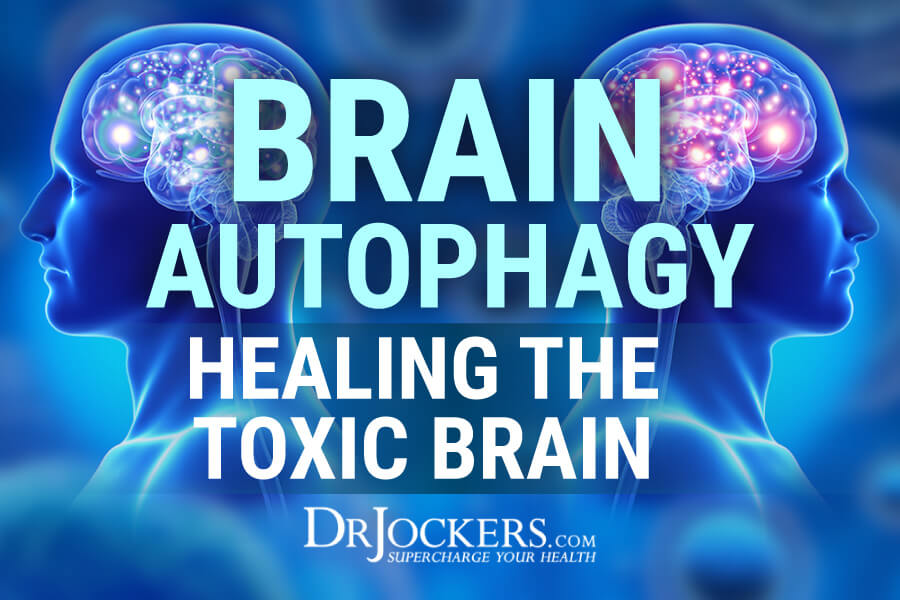
Brain Autophagy: Healing the Toxic Brain
Your brain is an incredibly important organ. It is the center of everything. It is responsible for learning, cognition, memory, thinking, and individual growth. Keeping your brain healthy is clearly critical. Brain autophagy is a process that allows your brain to regenerate, get rid of old and unhealthy cells, and replace them with new and healthier ones.
The problem is that as you age, there is an increasing risk of brain degeneration. Leading an unhealthy lifestyle and toxic environmental factors can lead to a decline in brain health and function. The good news is that making some lifestyle changes using natural brain-supporting strategies can help to enhance brain autophagy, support your brain function, and prevent brain degeneration.
In this article, you will learn about the importance of brain health, the process of brain degeneration, the importance of brain autophagy, and the importance of creating resilient brain mitochondria. I will share my top strategies to promote brain autophagy and brain health.
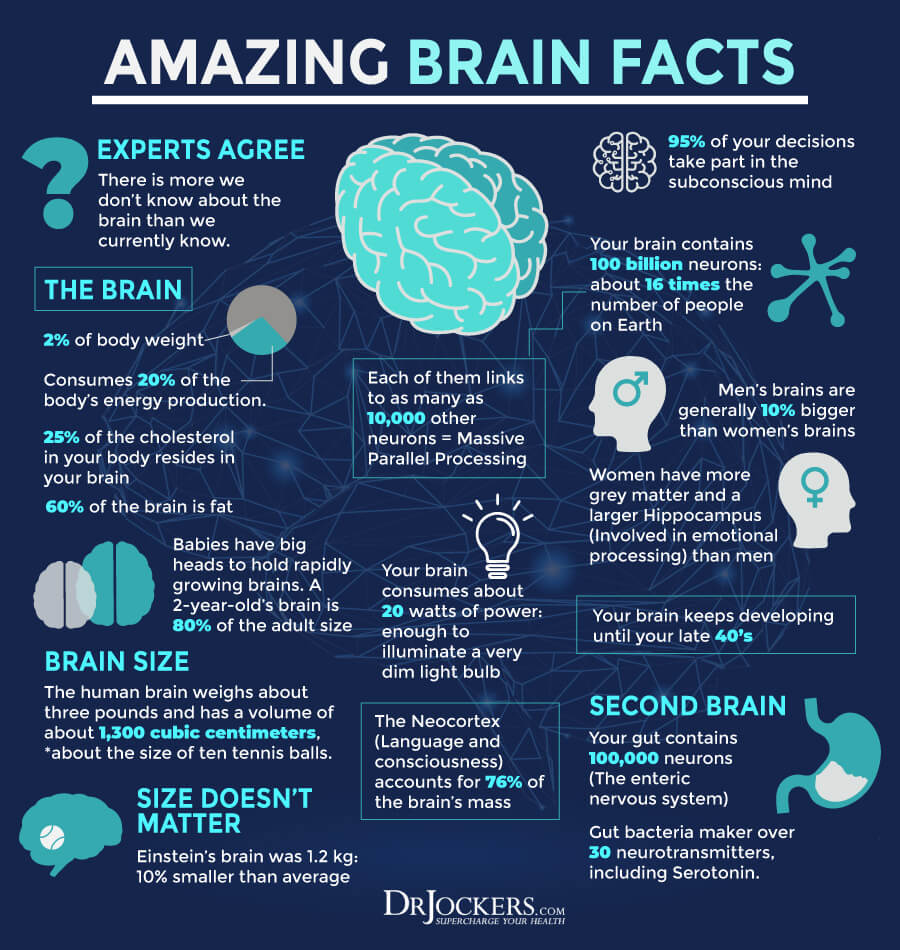
The Importance of Brain Health
If you think about it, your brain is one of your most important organs. Of course, it helps you think, but it’s much more than that. Your brain is the center of all of your body’s functions and systems. It is essentially the command center for your nervous system that perceives stimuli, activates responses, and obtains and sends signals across your body to keep you safe and healthy.
Your brain is where your memory is stored and learning, cognition, and individual growth is happening. It helps you stay clear and active. It allows work, play, and rest. Having a healthy brain is important for you to live a healthy and long life.
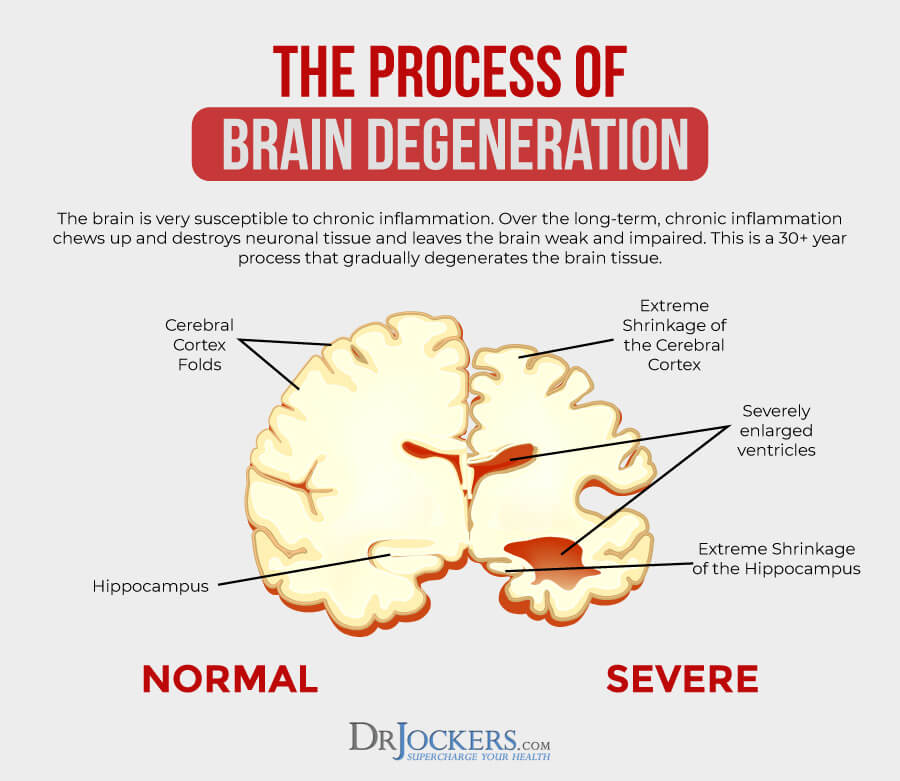
How The Brain Degenerates
Brain degeneration is a serious health problem that our aging society is facing in our world. Neurodegenerative or brain degenerative diseases, including dementia, Alzheimer’s disease, and Parkinson’s disease lead to brain and nerve deterioration over time. Alzheimer’s disease alone affects 5 million people in the United States.
Symptoms may include memory loss, confusion, forgetfulness, personality changes, mood changes, anxiety, apathy, agitation, or loss of inhibition depending on the type of brain degeneration you are experiencing. New symptoms can develop and symptoms tend to worsen as the disease progresses. While there is no cure for neurodegenerative disease, early diagnosis and treatment may be highly beneficial and dietary and lifestyle strategies may help to prevent or brain degeneration (1, 2, 3, 4, 5).
Most of your brain cells were formed while you were in your mother’s womb, others developed during infancy. While your brain cells are one of the longest living cells in your body, they may also die due to migration or differentiation, or simply get damaged and take abnormal turns.
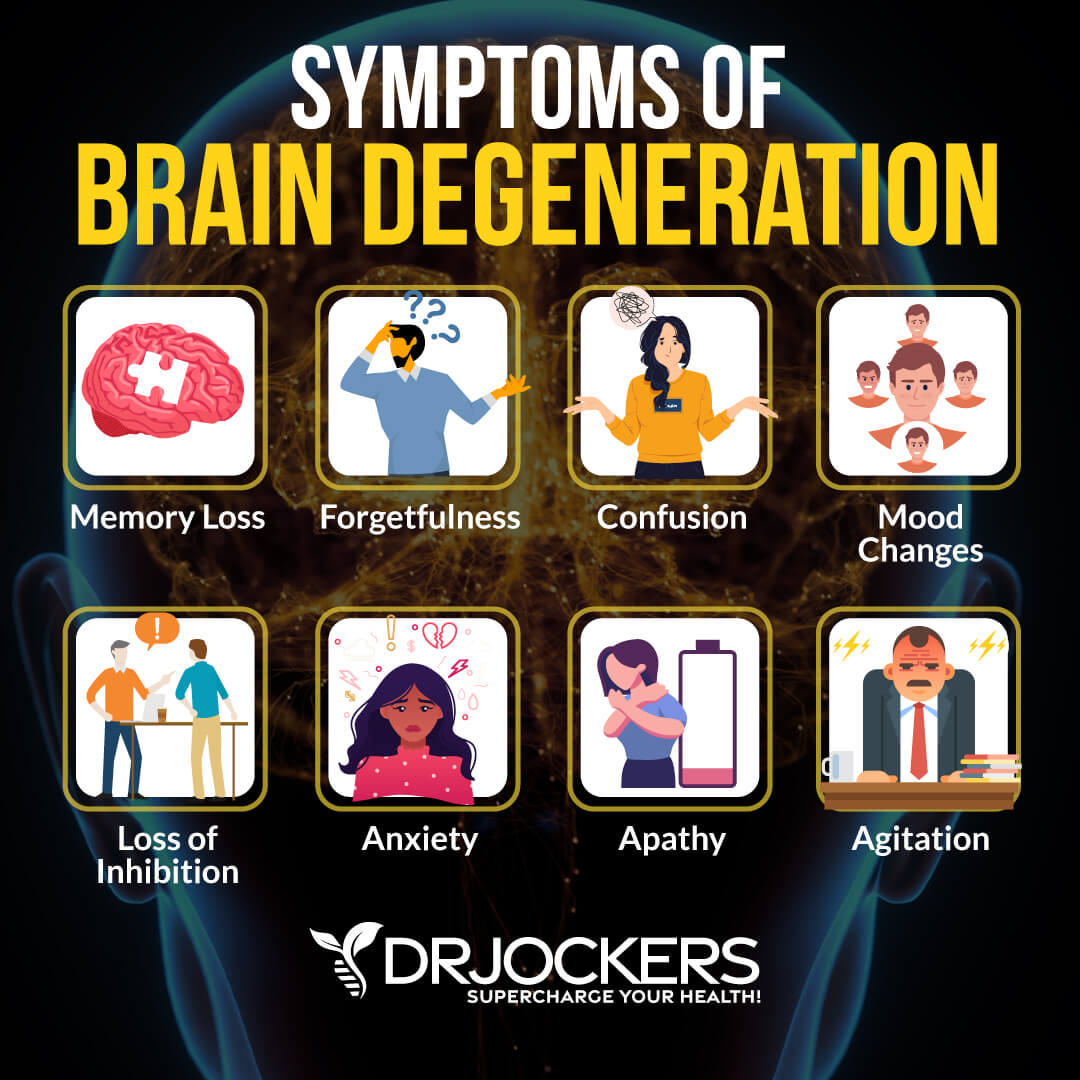
Brain Degeneration
Your brain cells require the continuous supply of energy from your blood and their support cells, the glia for nutrients, survival, and toxin removal. Your nerve cells require a lot of energy – about 20 percent of your body’s oxygen requirement and 25 percent of its glucose requirement.
This energy supply is essential, as your brain cells can die only within a minutes after a blood supply failure. Your brain cells also need energy for all their cellular functions, including the trafficking of cell organelles, repairing cellular parts and membranes. These processes rely on certain proteins that can wear out over time and need to be broken down and removed. Some new replacement proteins may also be defective and need to be replaced as well.
Essentially, your nerve cells require constant resources and energy for survival, as well as regular clean up and maintenance to avoid potential protein build up. As you age, this may become increasingly difficult for your brain. Abnormal protein junk pile in nerve cells is commonly seen in the aging brain, especially in neurodegenerative disorders, such as Alzheimer’s and Parkinson’s disease.
While we don’t fully understand why these sticky protein clumps develop in the brain as we age it seems that dietary and lifestyle factors certainly play a role. Certain lifestyle and environmental factors, including blood sugar imbalances, environmental toxicity, sedentary lifestyle, poor sleep, chronic stress, and gut dysbiosis, may increase your risk of brain degeneration (6, 7, 8, 9, 10, 11, 12, 13, 14, 15, 16, 17, 18, 19, 20, 21, 22, 23).
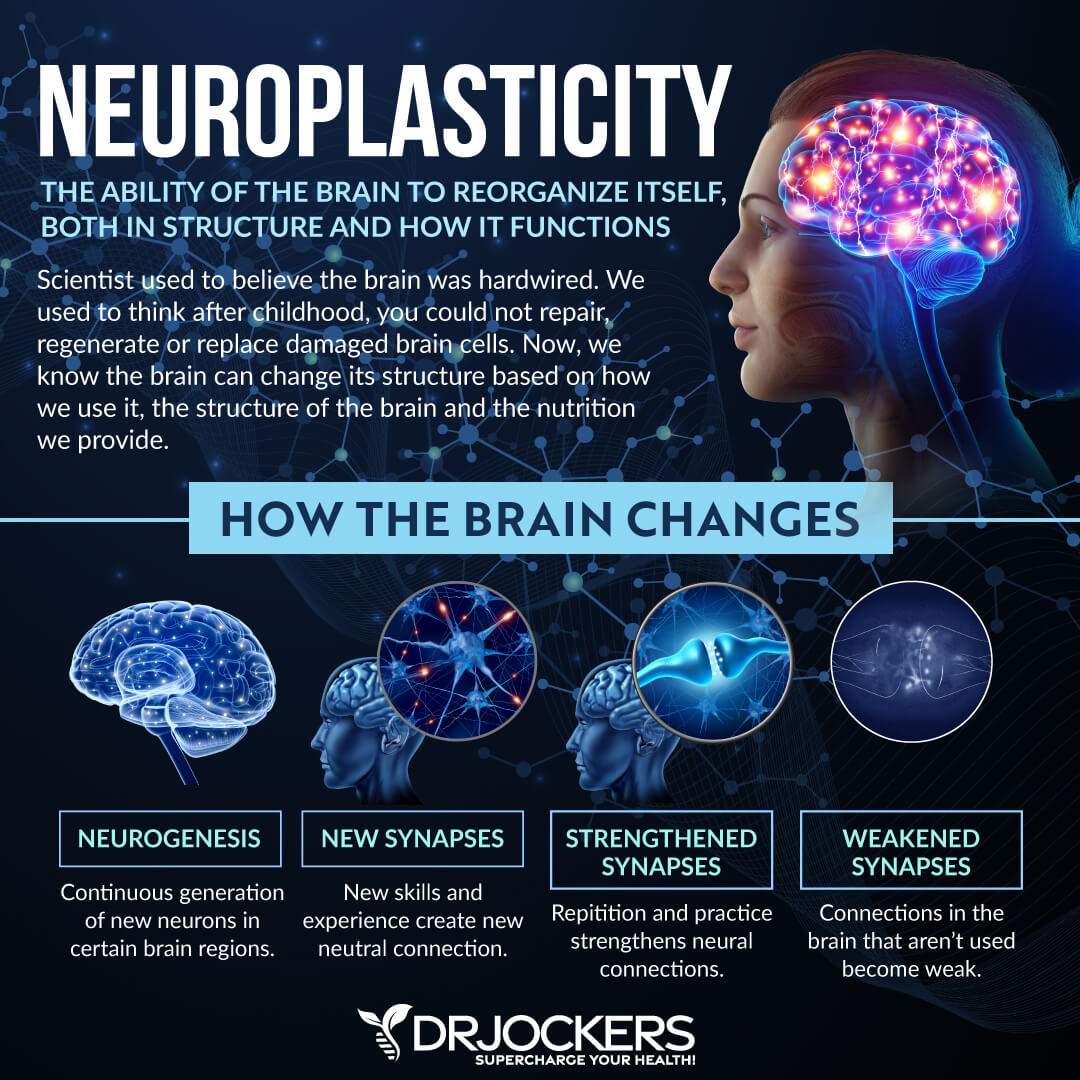
Neurogenesis and Brain Autophagy
The good news is that while old research believed that your brain has limited capacity to regenerate, new research suggests that your brain is actually able to create new cells throughout your lifespan and brain regeneration is possible. Your brain creates about 700 new neurons per day in the hippocampus allowing it to maintain its central function.
The science of neurogenesis suggests that certain lifestyle habits can encourage brain regeneration, improve your brain health, and may help to prevent or treat degenerative diseases. Brain autophagy is very important for preventing and slowing brain degeneration and allowing brain regeneration (24, 25, 26, 27, 28).
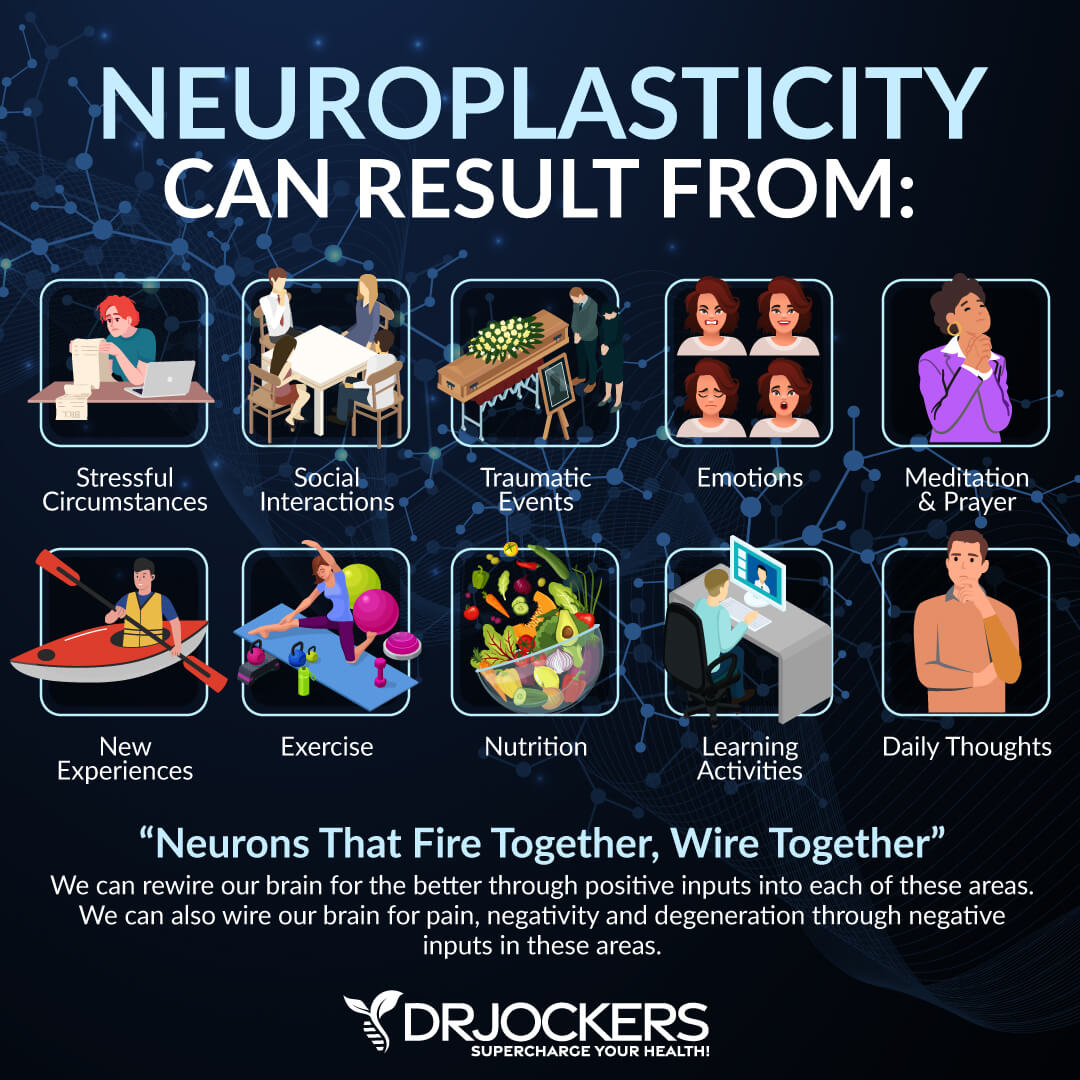
What Is Brain Autophagy
The word autophagy comes from the Greek word ‘auto-phegein’ or ‘self-eating’. It refers to the process of cellular recycling where the cell itself metabolizes various components in order to reuse them and build new and healthier cell structures.
Your cells contain a number of important components called organelles. When your cells are exposed to stressors, such as nutrient deprivation, they create a double-membrane structure called phagophore. The phagophore is very flexible and able to surround cellular components and deliver them to lysosomes. Lysosomes are unique organelles that are able to degrade particular components by releasing degrading enzymes upon them.
The major driver of any autophagy is cellular stress. Your body is seeking balance and homeostasis. When stress, such as nutrient deprivation from fasting or exercise happens, your body needs to prepare for survival. To do this, it breaks down older or damaged cells and cellular organelles to leave room for the creation of new and healthier ones for better energy efficiency.
Brain autophagy refers to the process of autophagy in your brain. It allows the removal of old and damaged brain cells and the creation of new and healthy brain cells. Brain autophagy is essential for memory, cognition, and brain health, and may help to reduce brain degeneration. To learn more about autophagy, I recommend this article (29, 30, 31, 32).
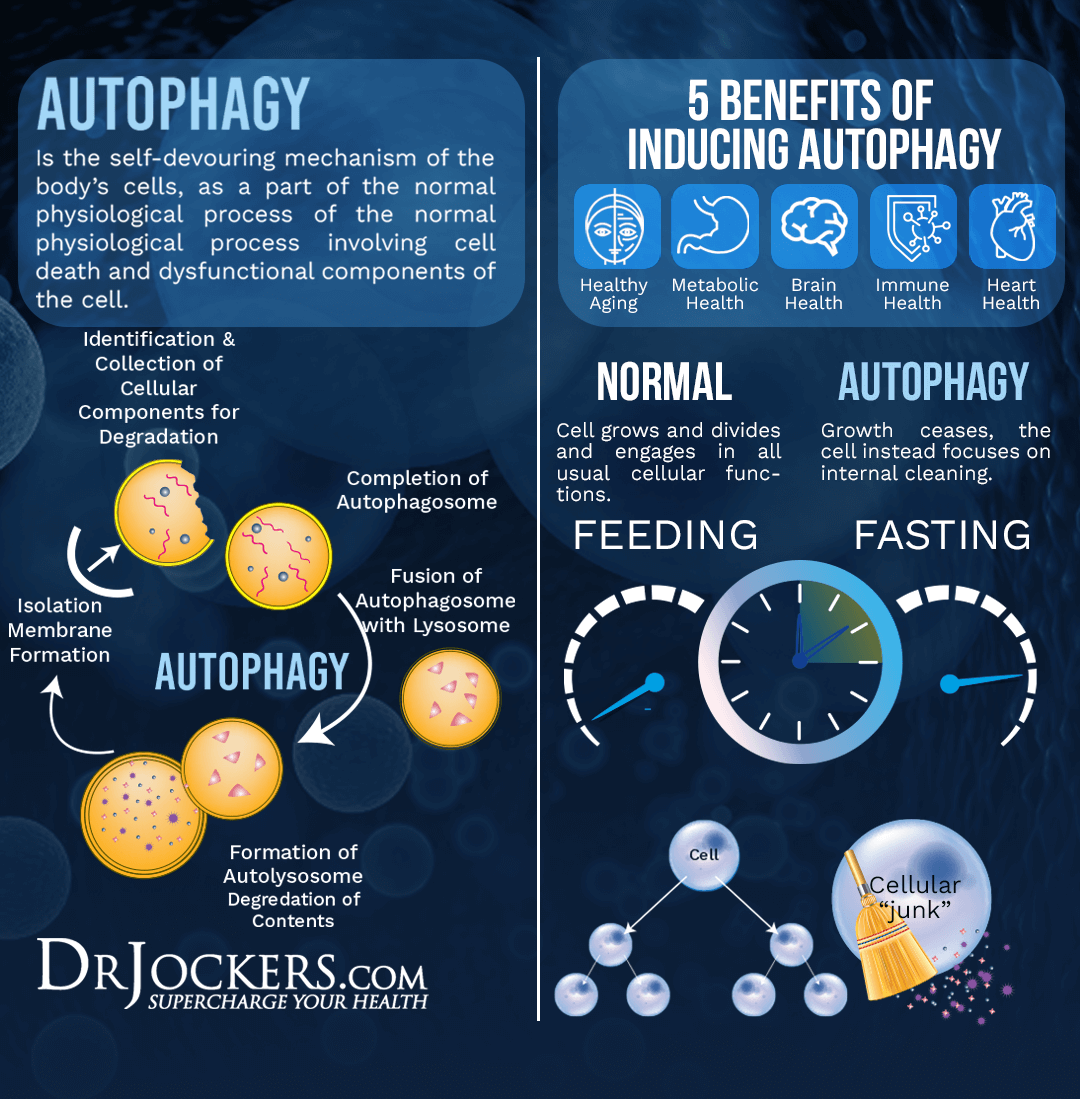
Creating Resilient Brain Mitochondria
Did you know that there are 10,000 mitochondria per brain cell? That’s a lot of mitochondria to take care of and keep healthy. They are the powerhouse of your brain cells, so their healthy functioning is critical. Mitochondrial dysfunction increases the risk of brain degeneration and brain health problems, so it is incredibly important to keep your brain mitochondria well-functioning.
Mitochondrial biogenesis is when cells increase their individual mitochondrial mass. Mitochondrial biogenesis through diet and lifestyle strategies, such as fasting, exercise, antioxidants, and certain supplements, can help to create resilient brain mitochondria and reduce brain degeneration and neurodegenerative disease (33).
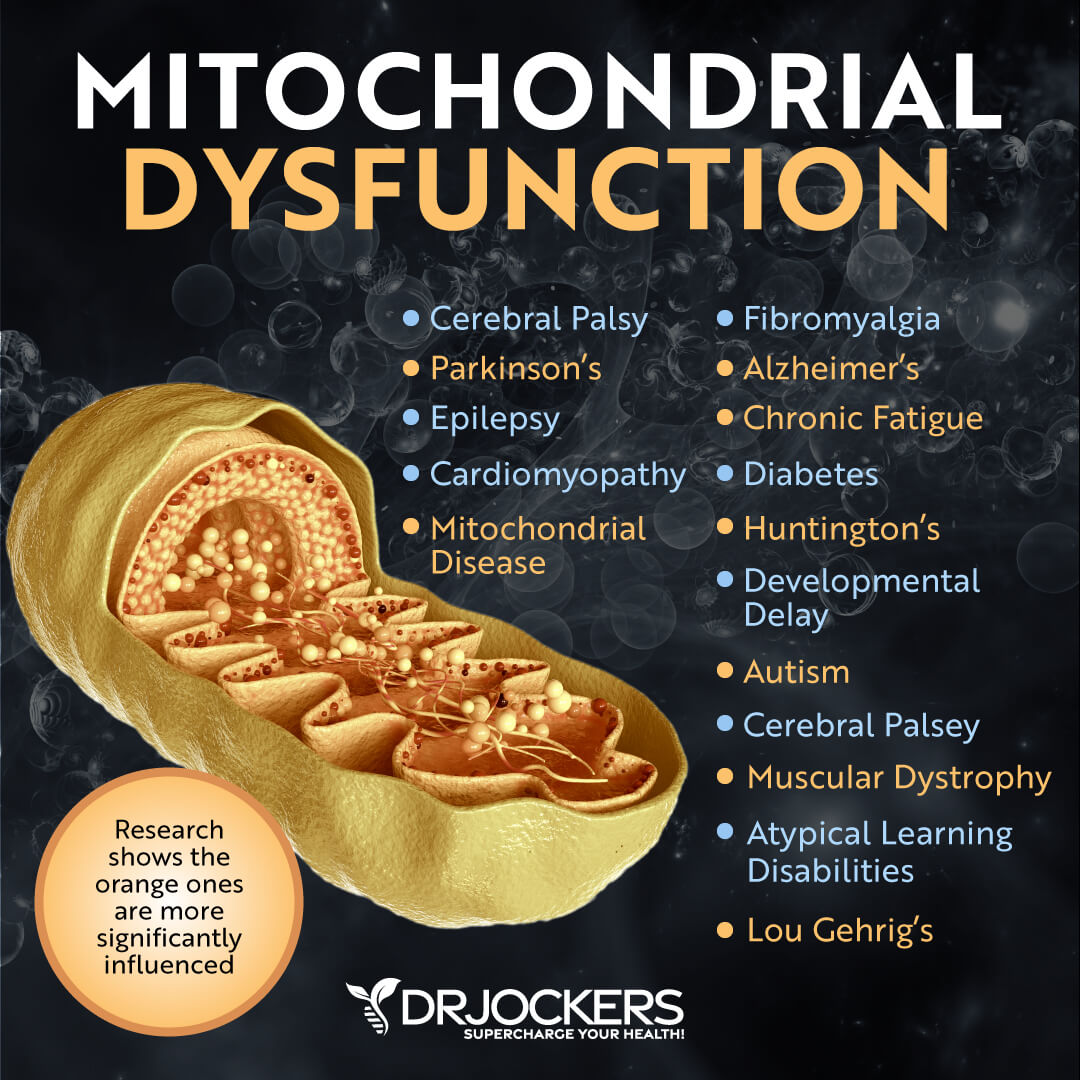
Top Strategies to Promote Brain Autophagy
Brain autophagy is critical for promoting brain health and preventing brain degeneration. There are a number of different strategies you can apply to support your body’s ability to heal and repair brain cells.
I would recommend putting into practice at least 6-8 of these strategies on a daily basis if possible. The more of these you can stack together the faster you will enhance your brain autophagy.
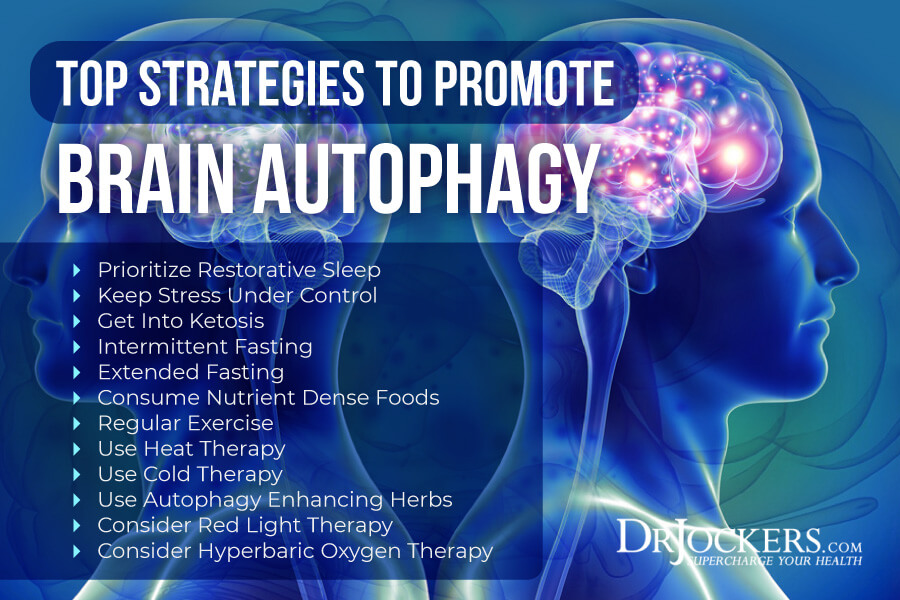
Prioritize Restorative Sleep
To promote brain autophagy, it is important that you prioritize restorative sleep. Sleep is essential for rest, repair, and cellular regeneration. This means that sleep allows brain autophagy. I recommend that you go to sleep and wake up around the same time every day to support your circadian rhythm and sleep cycle. Avoid food, especially sugar and caffeine, close to bedtime. Choose herbal tea or a glass of water instead.
Turn off your electronics a few hours before bed. Wind down, instead, by reading, playing crossword puzzles, journaling, taking a bath, meditation, and prayer. Make sure that your bedroom is a safe and relaxing environment with a comfortable bed, bedding, pillows, and black-out curtains. Having a salt lamp or diffusing some lavender essential oils may also have some calming benefits (35).
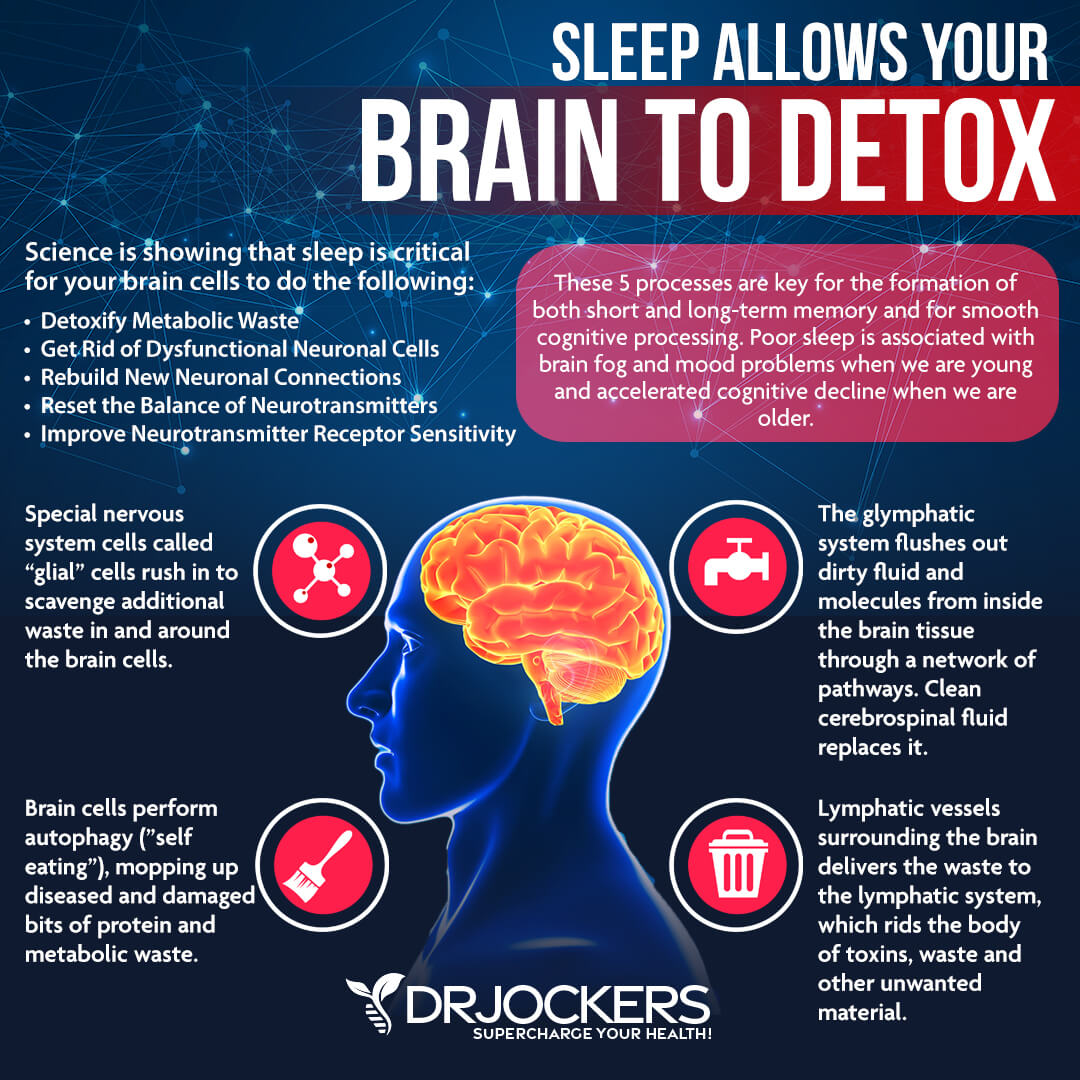
Keep Stress Under Control
I know that the world can seem stressful, but keeping your stress under control is absolutely essential for brain autophagy and brain health. I recommend that you keep a gratitude journal and stop throughout the day to say thanks for the small things. Learn to reframe your negative thoughts into positive ones.
Working with a therapist or life coach or even your minister can help you develop skills to cope with stress better and create positive thinking patterns. Practice journaling, meditation, prayer, and breathing exercises to relax your mind and body. Go on nature walks, dance to your favorite song, try some arts and crafts, watch a funny movie, read an uplifting book, and spend time with uplifting people. Yes, phone and video calls count too, if you are currently far from your favorite people (36, 37).
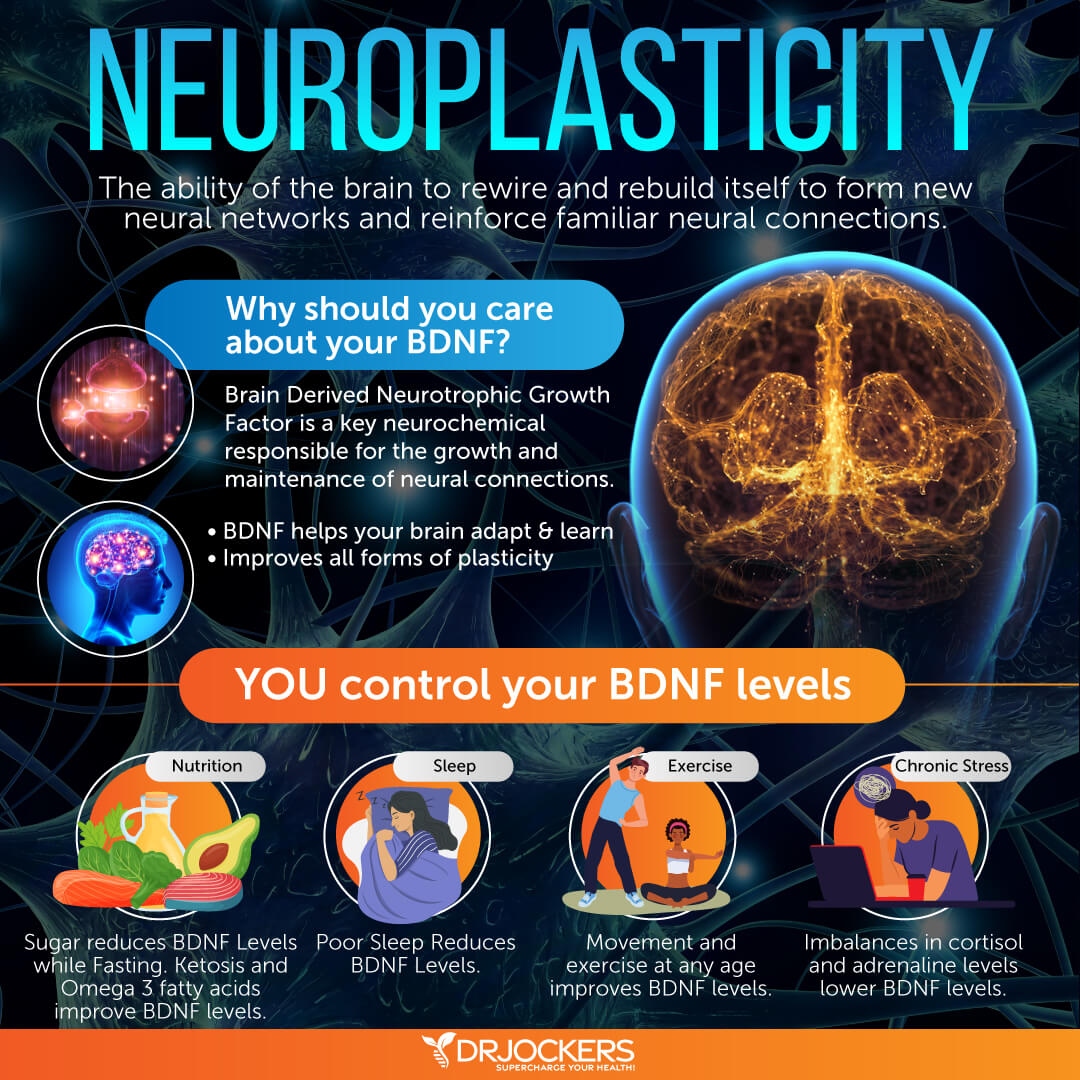
Get Into Ketosis
Ketosis is a simple and effective way to support brain autophagy. Most people consume a diet that’s high or moderate in carbohydrates, which means that their body relies on glucose (sugar) for energy. However, if your body doesn’t receive enough glucose through diet due to fasting or eating a high-fat ketogenic diet, it has to turn to stored and dietary fat for energy. These fast convert into ketones that enter your mitochondria and convert into energy.
Ketosis supports enhanced autophagy, mitochondrial biogenesis, brain health, and mental sharpness. To achieve ketosis and support brain autophagy, I recommend a combination of the keto diet and intermittent fasting. To learn more about ketosis, I recommend reading this article, and to learn more about the keto diet, I recommend this one (38, 39, 40, 41, 42, 43, 44, 45, 46, 47).
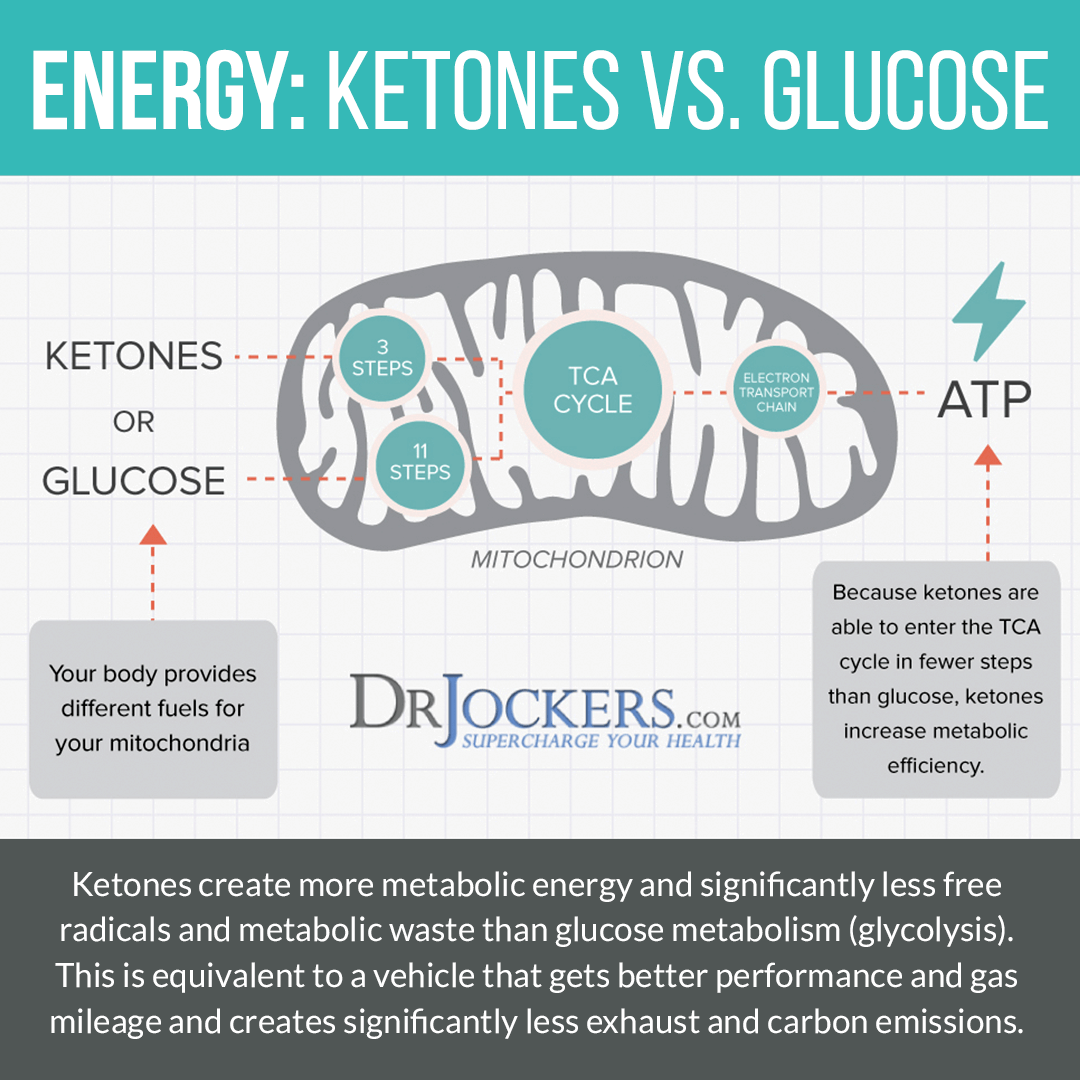
Intermittent Fasting
Intermittent fasting is a fantastic way to improve brain autophagy. It is a form of fasting that rotates between not eating (fasting) and eating (feasting) over a period of time. Intermittent fasting has many benefits, including cellular repair, autophagy, immune regulation, inflammation levels, and insulin sensitivity.
It also helps to lower the risk of neurodegenerative conditions, such as dementia and Alzheimer’s disease. To learn more about the benefits of intermittent fasting and best intermittent fasting practices, I recommend reading this article (48, 49, 50, 51, 52, 53, 54, 55, 56, 57, 58).
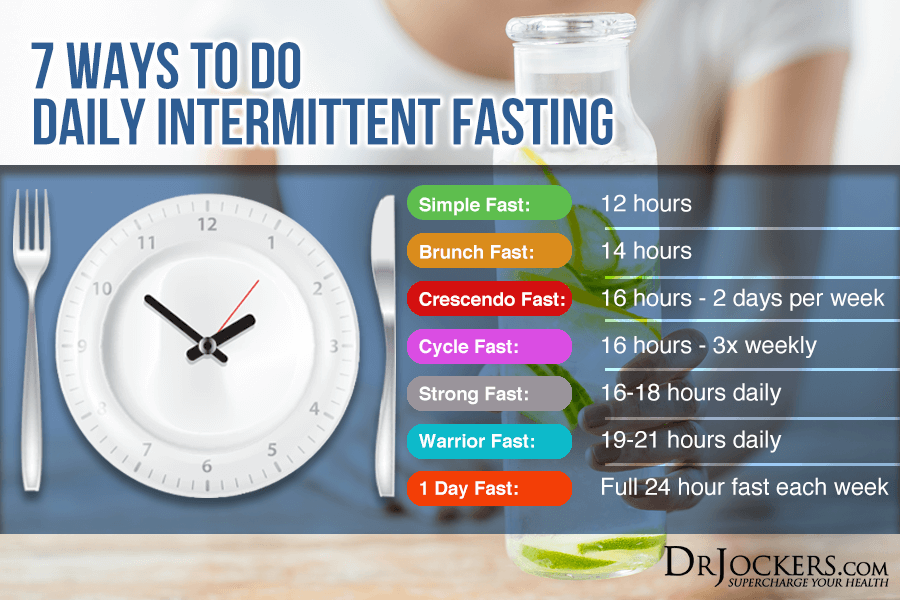
Extended Fasting
Extended fasting is another way to improve brain autophagy. Extended fasting goes a step beyond intermittent fasting. While intermittent fasting only goes for anywhere between 12 to 23 hours of fasting a day, extended fasting least for at least a day, usually several hours, and in some cases even longer.
Extended fasting normally involves no food for the fasting period, only calorie-free liquids, including water and herbal tea. I only recommend extended fasting to those who are experienced with and do well on more advanced intermittent fasting protocols.
You may also try an extended partial fast, such as a green juice or bone broth fast first, to prepare for a water fast. You may learn more about extended water fasting in this article, partial fasting here, and how to break and extended fast in this one (48, 49, 50, 51, 52, 53, 54, 55, 56, 57, 58).
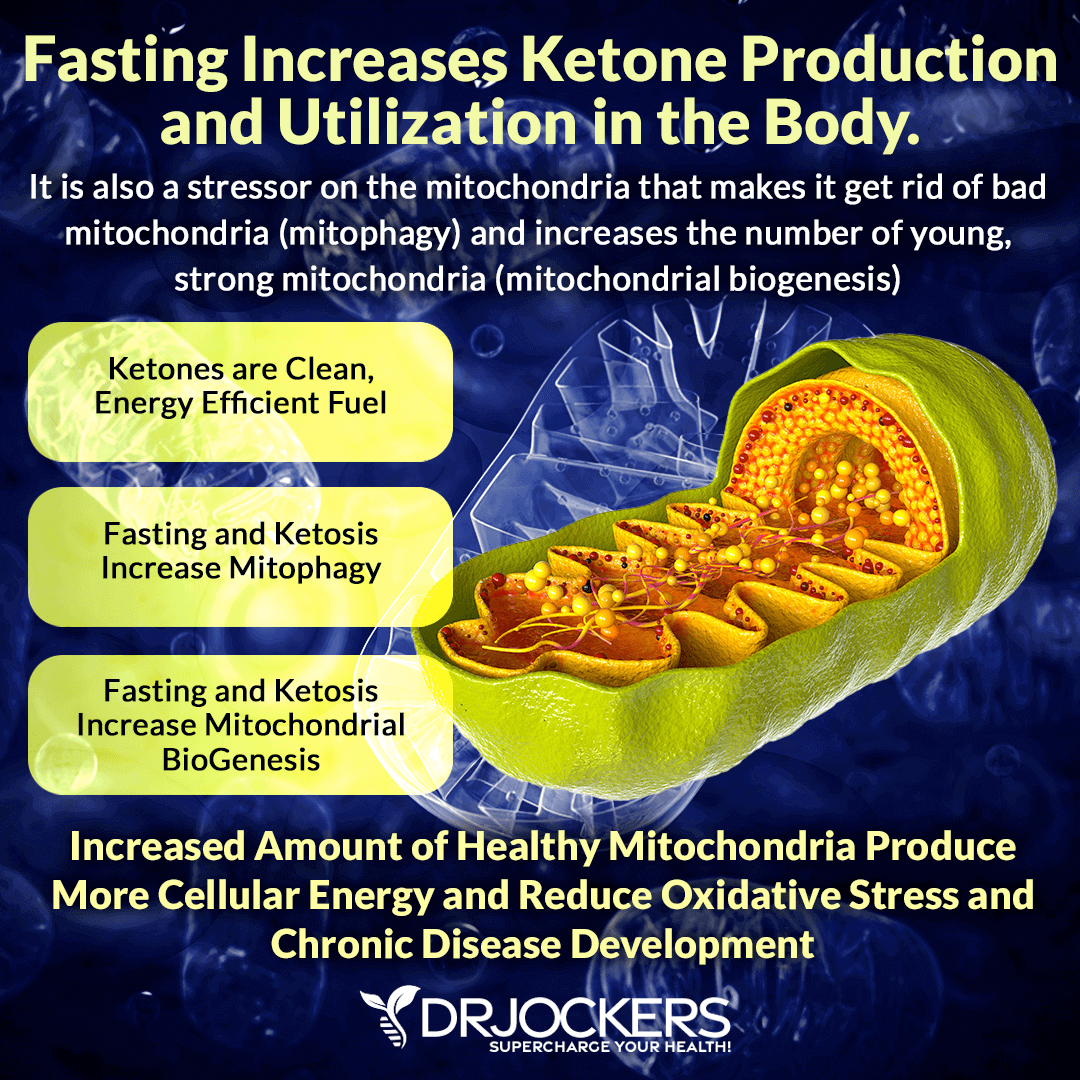
Consume Nutrient-Dense Foods
If you want to achieve brain autophagy and support your brain health, make sure that you consume an anti-inflammatory, brain-supporting diet abundant in nutrient-dense foods. Remove all inflammatory foods, including refined sugar, gluten, refined oils, deep-fried and processed foods, conventional dairy, grain-fed meat and eggs, soda and sugary drinks, and foods that you are sensitive to.
Instead, load up on greens, such as spinach, kale, and chards, vegetables, such as cucumber, celery, and asparagus, low glycemic index fruits, such as lemon, lime, and berries, herbs and spices, including turmeric, ginger, and basil, healthy fats, such as avocados, coconut oil, extra virgin olive oil, and organic butter and ghee, and clean protein, including grass-fed meat, free-range poultry and eggs, and wild-caught fish. To learn more about a nutrient-dense diet, I recommend reading this article as well (59, 60).
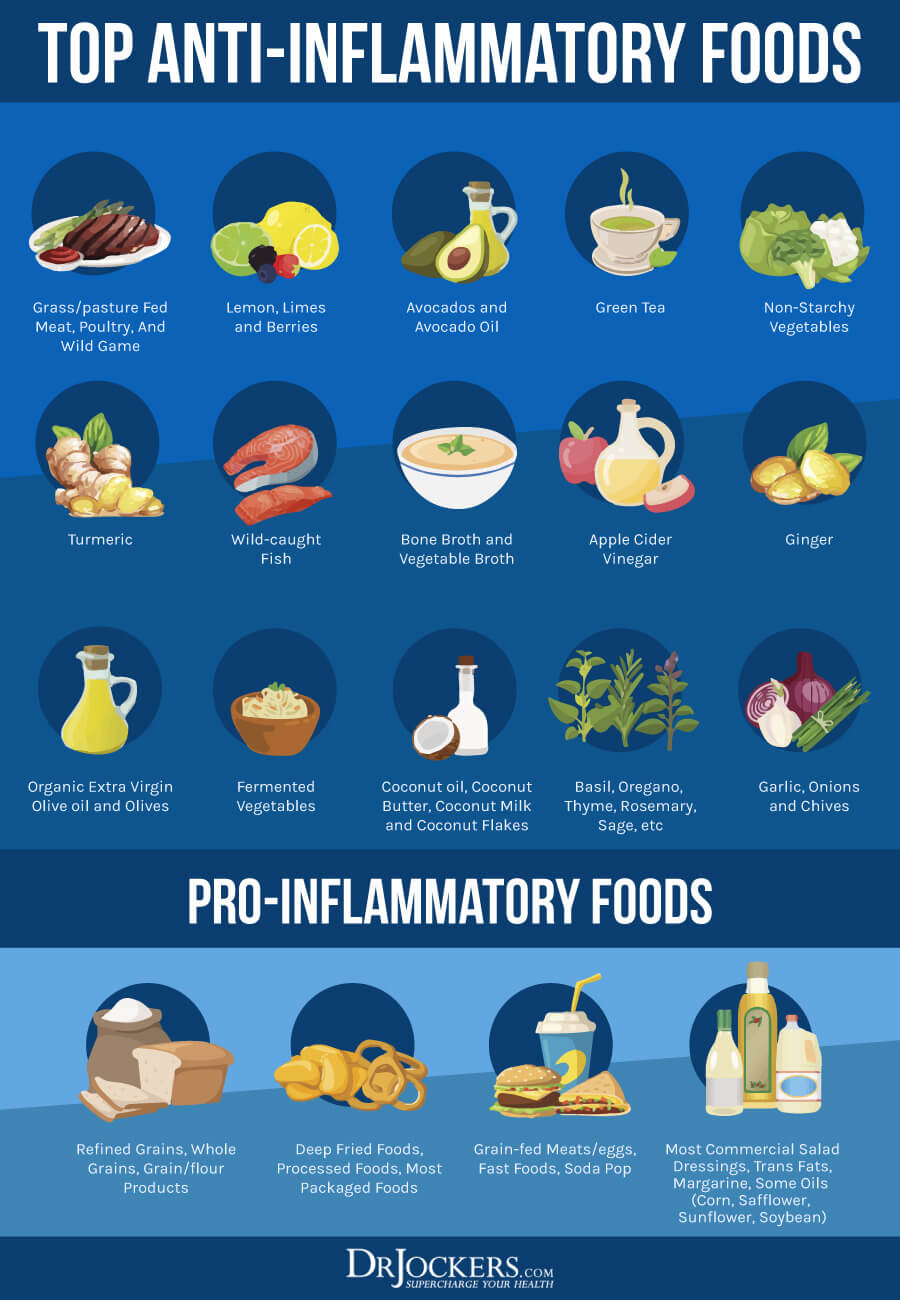
Regular Exercise and Brain Autophagy
Regular exercise is critical for brain autophagy and brain health. Regular exercise and movement may help to reduce chronic inflammation, decrease stress, uplift your mood, improve memory and learning, and reduce the risk of cognitive decline. I recommend that you exercise at least 20 to 30 minutes 5 times a week and stay active throughout the day. Aim for a mix of cardiovascular exercise, strength and resistance training, and low-impact exercise.
There are many forms of exercise that you can do without leaving your house. High-intensity interval training (HIIT) is great for a mix of cardio and strength work. You may use Zumba or dance videos, try jumping jacks, or get an indoor mini trampoline for cardio.
Try bodyweight exercises, TRX, or kettlebells for strength training. Yoga, pilates, and barre are great low impact exercises that also tone and strengthen. Stay active by stretching regularly, dancing to your favorite song, playing with your kids or pets, gardening, dancing, or if you can, going for a walk outside (60).
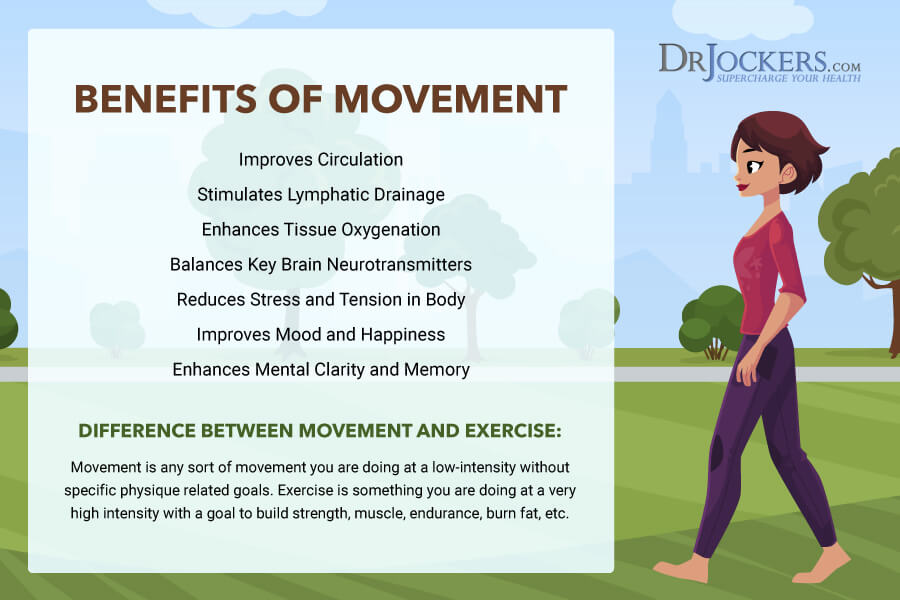
Heat Therapy and Brain Autophagy
To support brain autophagy, you may want to consider heat therapy. The stress of the heat urges your body to destroy old and damaged cells and create new and healthy cells through the process of autophagy. Heat shock proteins (HSP) are a group of proteins that your cells produce as a response to exposure to stressful conditions they encounter.
They play an important role in your body’s cellular repair system. They may help to stabilize new proteins and refold damaged proteins. Saunas, UV light therapy, taking hot healing baths, or using a heating pad on sore muscles may be forms of heat therapy (61).
For optimal immune support, brain support and other health benefits, I recommend an infrared sauna by High Tech Health which is the best, but I also like the HigherDOSE Infrared Sauna Blanket here for a portable sauna as a great affordable option with safe, deep penetrating, detoxifying, and immune-supporting benefits. Use the coupon code DRJOCKERS to save 15% off on HigherDOSE products including the Sauna Blanket.
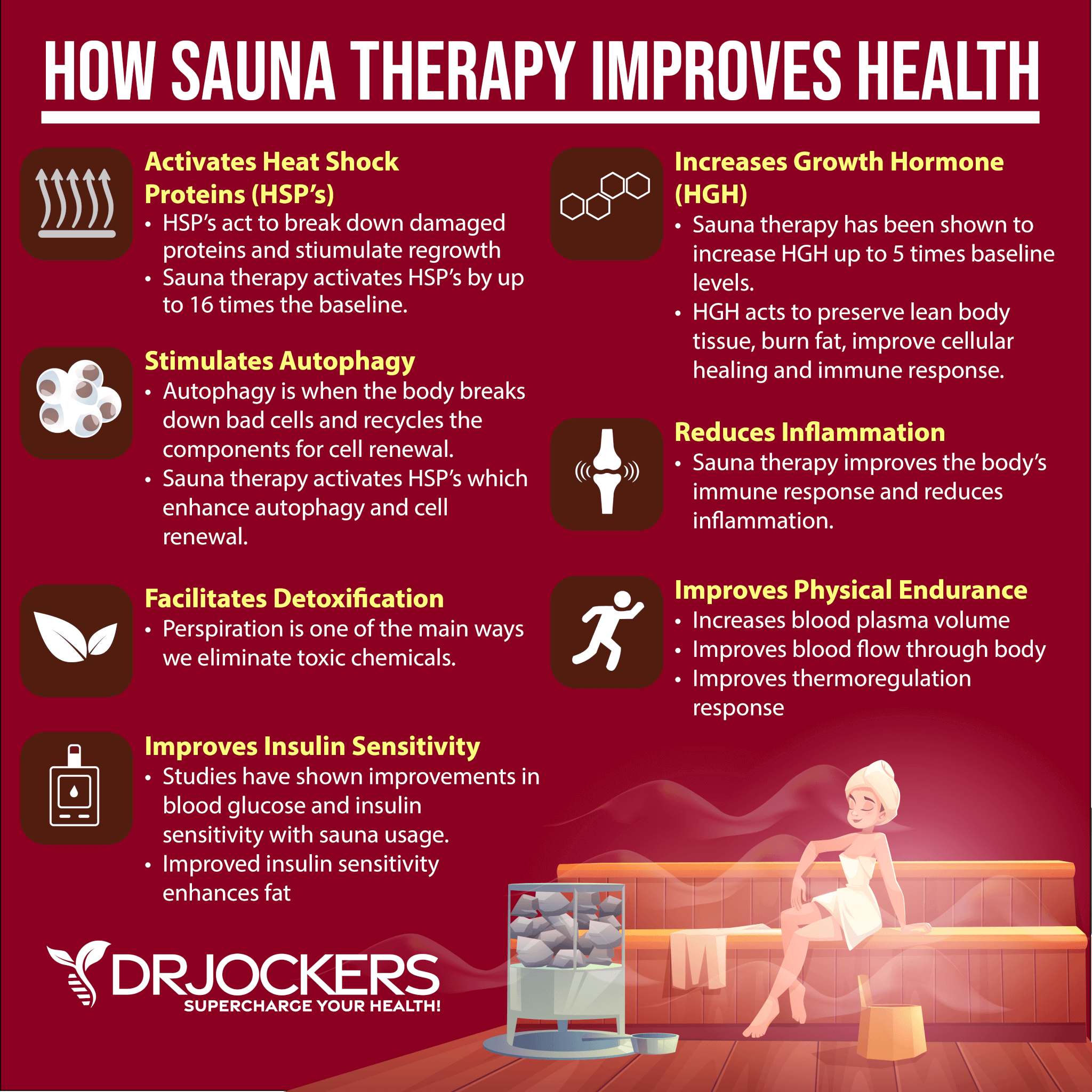
Cold Therapy
Along with heat therapy, I recommend that you consider cold therapy as well for increased brain autophagy. In this case, the stress from the cold leads to autophagy, the removal of old and damaged cells and the creation of new and healthy cells. Cold shock proteins or cold shock domain (CSD) is a protein domain of about 70 amino acids.
Cold shock proteins may help your cells to survive under stressful conditions. While heat shock proteins help your cells to survive conditions warmer than optimal, cold shock proteins help survival in lower than optimal temperature. Cold therapy methods include cryotherapy chambers, jumping into a cold pool, or taking a cold shower.
I recommend combining hot and cold therapy. You may want to sit in a sauna then take a cold shower or jump into the pool. An even simpler way is finishing up your warm shower with a cold shower. To learn more about cold therapy and the benefits of cold showers, I recommend this article (61, 62, 63, 64).
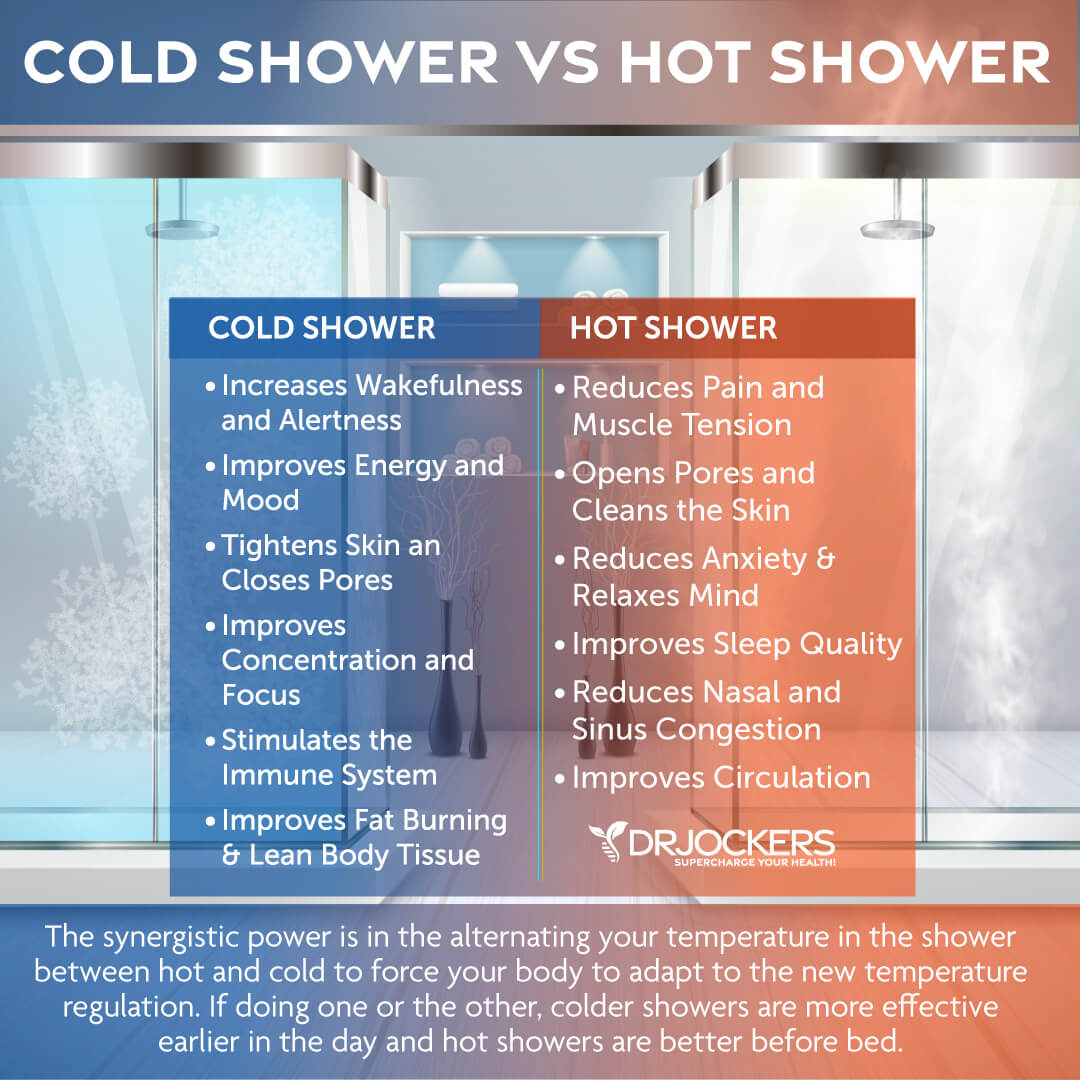
Herbs That Enhance Brain Autophagy
To enhance brain autophagy and protect your brain cells, I recommend autophagy-enhancing herbs, including matcha green tea, ginger, turmeric, resveratrol, citrus bergamot, oregano, sage, rosemary, and quercetin. One of my favorite autophagy-enhancing products is Inflam Defense™. It is a powerful supplement made with turmeric, ginger, boswellia, quercetin, rosemary, and rutin. It protects from oxidative stress, reduces inflammation, and boosts brain autophagy.
Another powerful brain autophagy-enhancing supplement I love is Resveratrol Power. Resveratrol is a potent polyphenol found in the skin of grapes and berries with potent antioxidant and anti-aging benefits. It lowers inflammation, reduces oxidative stress, and protects your brain. To learn more about the top autophagy-enhancing herbs, I recommend this article (65).
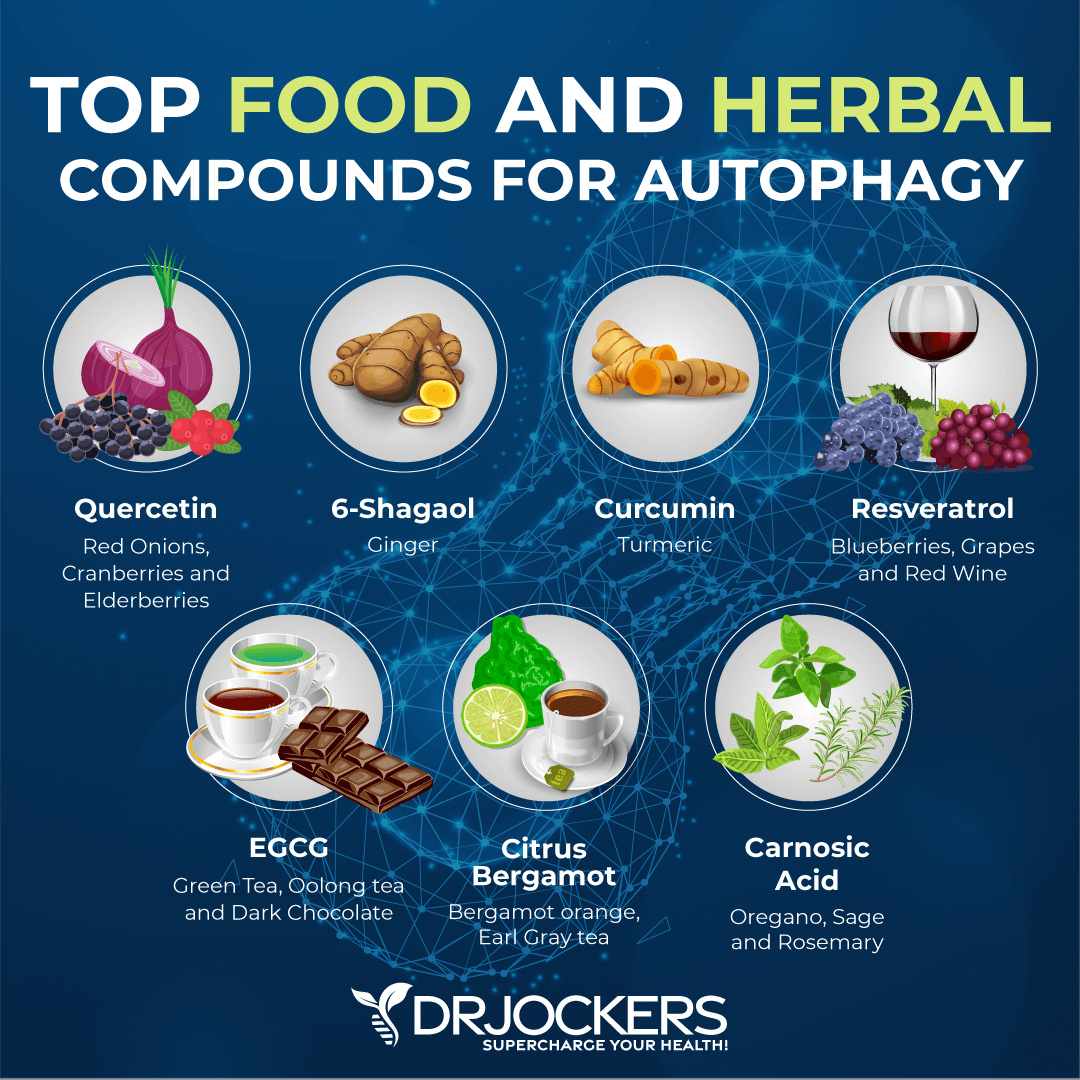
Red Light Therapy
Red light therapy (RLT) is a powerful therapeutic technique that may improve brain autophagy. IT has been used for a variety of therapeutic purposes in alternative healing, including wounds, scars, skin issues, inflammation, pain, sleep, and hair growth. It increases cellular energy and antioxidant activity in your body.
If you are looking for a powerful, safe, effective, yet affordable red light therapy option, I recommend Mito Red Light Therapy Device. It is a third-party tested device with the highest power on the market.
Most red light therapy devices use only 2 watt or 3 watt LEDs, whereas Mito Red Light Therapy uses 5 watt LEDs for the best results. You will experience higher irradiance for better results in less time. I love that it comes in different sizes for your convenience. It’s affordable yet effective. I recommend that you try it. Use the coupon code DRJOCKERS at checkout to save 5% on the MitoRed product line.
To learn more about red light therapy, I recommend this article (66, 67, 68, 69, 70, 71, 72, 73, 74, 75, 76, 77).
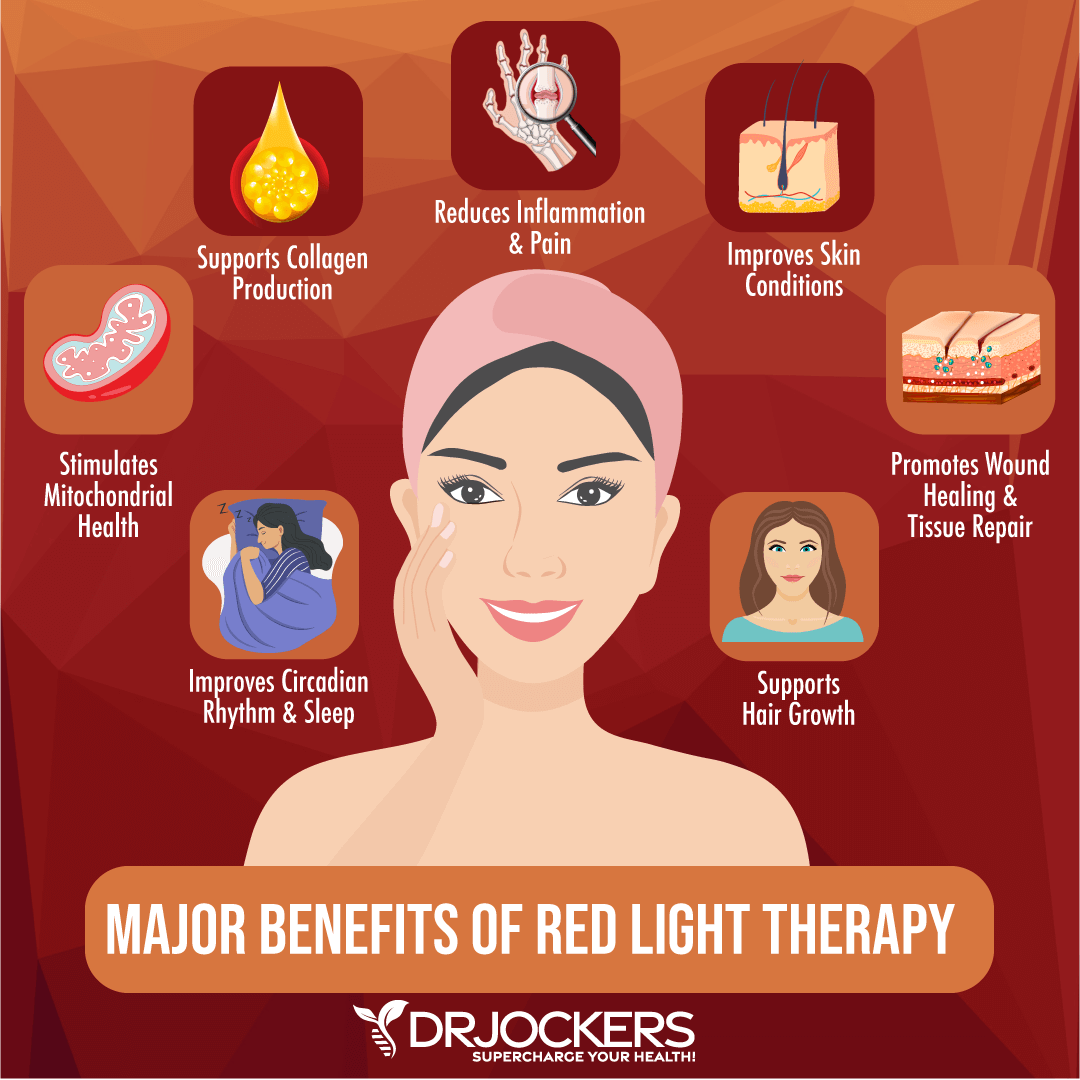
Hyperbaric Oxygen Therapy
Hyperbaric oxygen therapy is a method that not only supports brain autophagy but has countless health benefits. It has been shown to raise tissue oxygen levels, support new blood vessel growth, increase your body’s defense system, increase stem cells, reduce swelling, and support optimal health.
To learn more about hyperbaric oxygen therapy, I recommend reading this article (78, 79, 80, 81, 82,
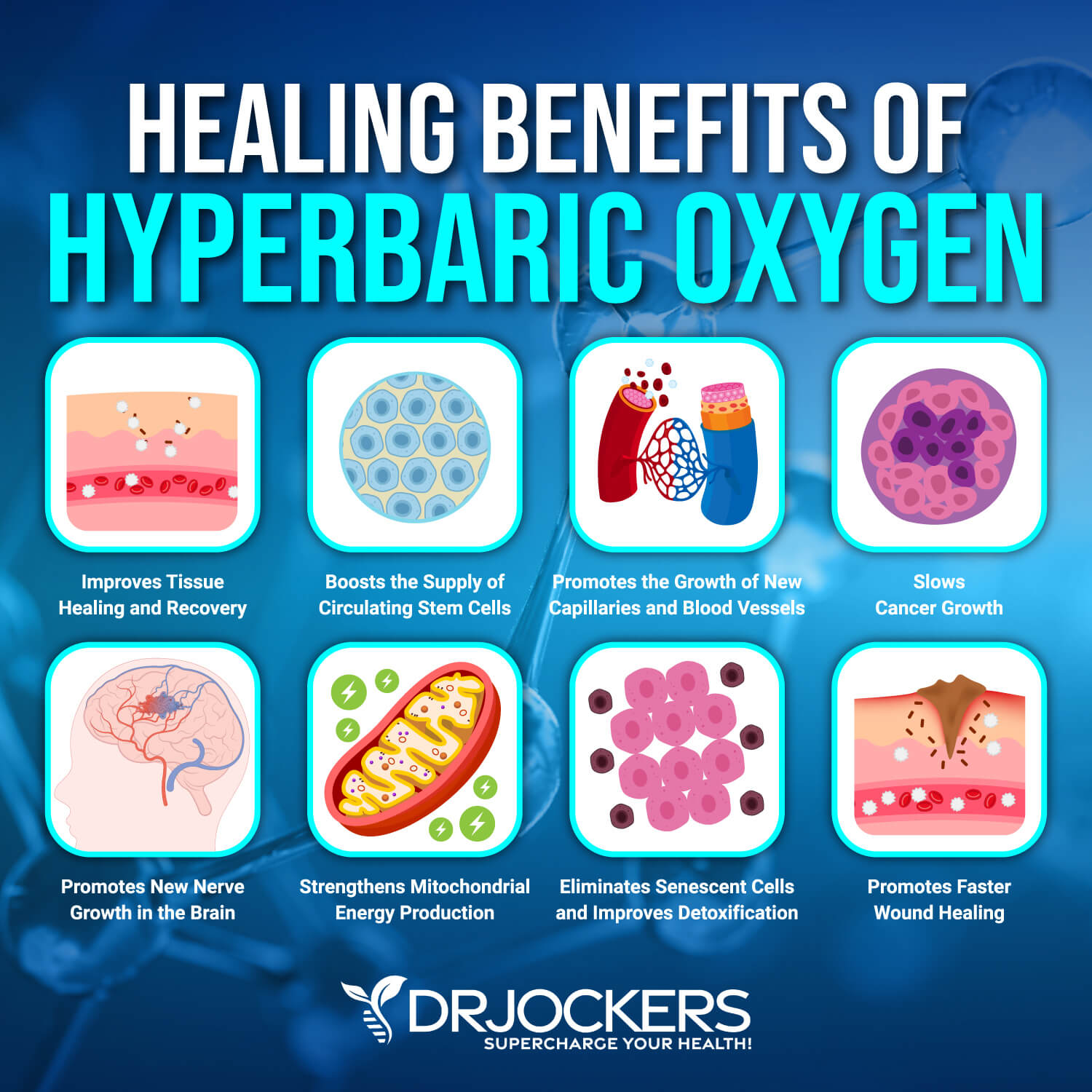
Final Thoughts on Brain Autophagy
Your brain is the center of all your functions and system. It is essential for learning, cognition, memory, thinking, and individual growth. Brain autophagy is a process that allows your brain to regenerate, get rid of old and unhealthy cells, and replace them with new and healthier ones.
It helps your brain to stay healthy and prevent brain degeneration. Follow my top strategies to promote brain autophagy and support your brain function naturally.
If you want to work with a functional health coach, I recommend this article with tips on how to find a great coach. On our website, we offer long-distance functional health coaching programs. For further support with your health goals, just reach out—our fantastic coaches are here to support your journey.
Inflammation Crushing Ebundle
The Inflammation Crushing Ebundle is designed to help you improve your brain, liver, immune system and discover the healing strategies, foods and recipes to burn fat, reduce inflammation and thrive in life!
As a doctor of natural medicine, I have spent the past 20 years studying the best healing strategies and worked with hundreds of coaching clients, helping them overcome chronic health conditions and optimize their overall health.
In our Inflammation Crushing Ebundle, I have put together my very best strategies to reduce inflammation and optimize your healing potential. Take a look at what you will get inside these valuable guides below!


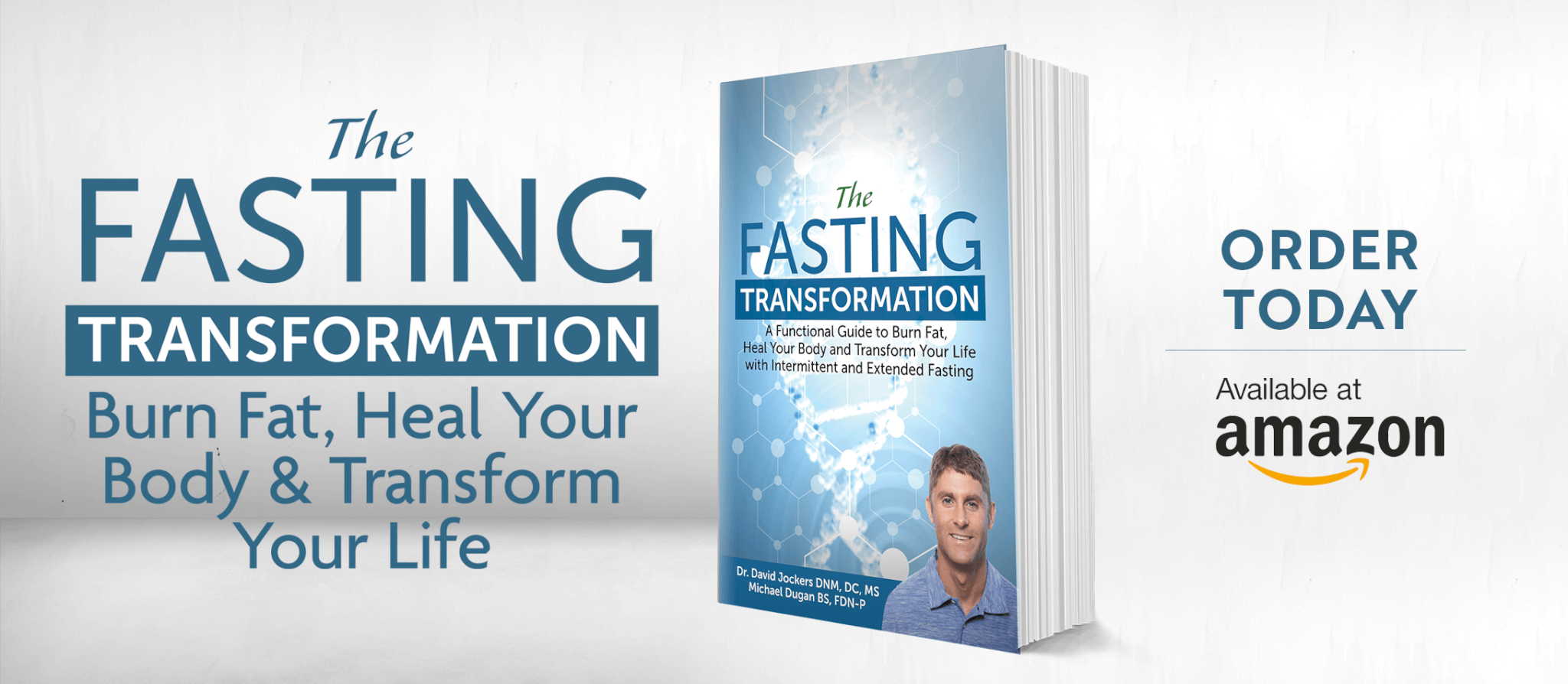
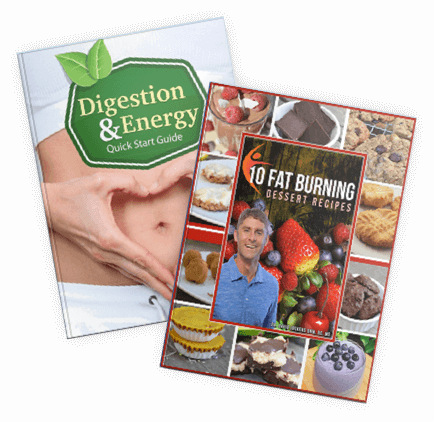
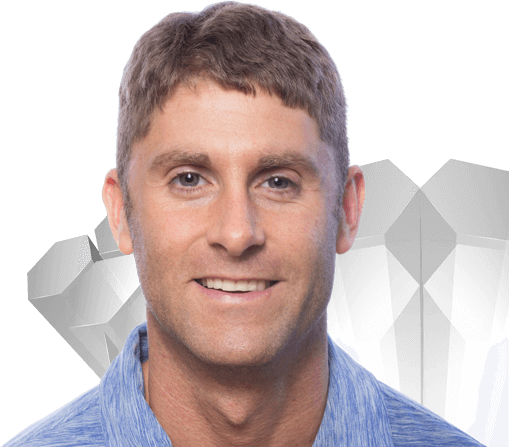
I would fast for a whole day, but I am underweight with muscle wasting…what would you suggest? I am looking for ways to reverse muscle wasting..and fasting wouldn’t help there.
I would recommend working with a functional health coach to guide you. https://drjockers.com/functional-nutrition-tips-to-find-a-great-health-coach/
Great artikel,
Very usefull and, for me, easy to do
Thank you very much
Glad to hear that!
MS is a mitochondrial issue…low thyroid due to gluten/dairy/soy/sugar/GMO/food with a label/heated oils hurt. Raising oxygen burning in the brain helps MS people.
Thanks for sharing!
Hi Doc ! I read your emails and see you on tv. I have a specific question. I read her on how to heal a toxic brain. My Husband has cognition problems due to a head injury at work that lead him to have his issues headaches no speech etc and Drs think Dementia, Dr is there any gummies or easily chewable melt. that I can give him? I hope you can help. I need to give him something to help detox his brain He worked with alot of chemicals with no mask.
Thank you hope to hear from you soon, God Bless you
Sorry to hear about your husband Alice! I would recommend working with one of our functional health coaches to customize a plan for him: https://drjockers.lpages.co/long-distance-coaching-dr-jockers/
and after an ischemic stroke, how does one repair that part of the brain?
The principles in this article will help: https://drjockers.com/cerebrovascular-disease/
Does red light therapy help reduce seizures and what’s the longest fasting period one can do safely if they get shaky hands from not eating for too long of a time?
Hello Lou, I haven’t seen any research on it reducing seizures, however, it does benefit the mitochondria so I wouldn’t be surprised if it does help reduce seizures.
For fasting – it is important to get your body adapted to burning fat first by eating a diet high in fat and protein and low in carbs for a week or so and not snacking – only eating 3 meals a day and gradually compress your eating window.
Hello ,
Since i had the covid19 my sens of smell is not as performing as before .despite my trial for different methods.i will try this brain autophagy …or keep trying ….many of your advice are brilliant .Thank you so much .
Maika
Yes this will help Maika! Blessings!
It may be worth mentioning that the skin is an effective excretory organ than can be very helpful in clearing the body of toxins & waste. Having a shower right after exercise, or a heat treatment, can remove what the skin has excreted, before it can be partially reabsorbed. That was the main reason for the dip in cold water after a sauna, though the cold part is to tone the skin & tighten the relaxed capillaries. A cold shower tightens up your pores &, therefore, reduces the skins ability to excrete wastes over what it can do in warm or hot water, but it is far superior to no shower at all. Your skin is a large organ & can be counted upon for a lot of cleansing. Cleaning it regularly can increase its efficiency.
Thanks for sharing!
I learned from another health podcast that
Nicotinic acid has been helping people recover their loss if senses.
Check it out.
Dr Jockers, you need to add pasture-raised eggs to your anti-inflammatory foods infographic.
Yes we love pasture-raised eggs!
Always helpful and informative information. Graphs help with the learning curve. I am grateful! Many thanks.
I had a hemorrhagic stroke in 2005, they put platinum in the aneurysm. And no one is able to tell me if it is safe for me to take things like “zeolite” or other things to detox from heavy metals. Do you know?
Next to my severe illnesses more brain issues but cant do IF or keto.
What do you think of medical medium and his approach and many results?
I have celiac disease, thyroid disease and am a vegetarian!
1) I have heard that a keto diet can harm your thyroid.
2) What about a vegetarian keto diet?
Thank you